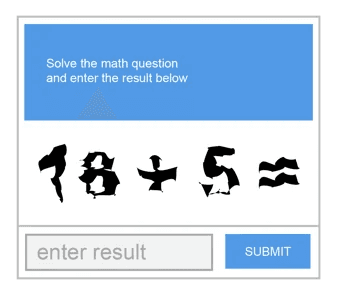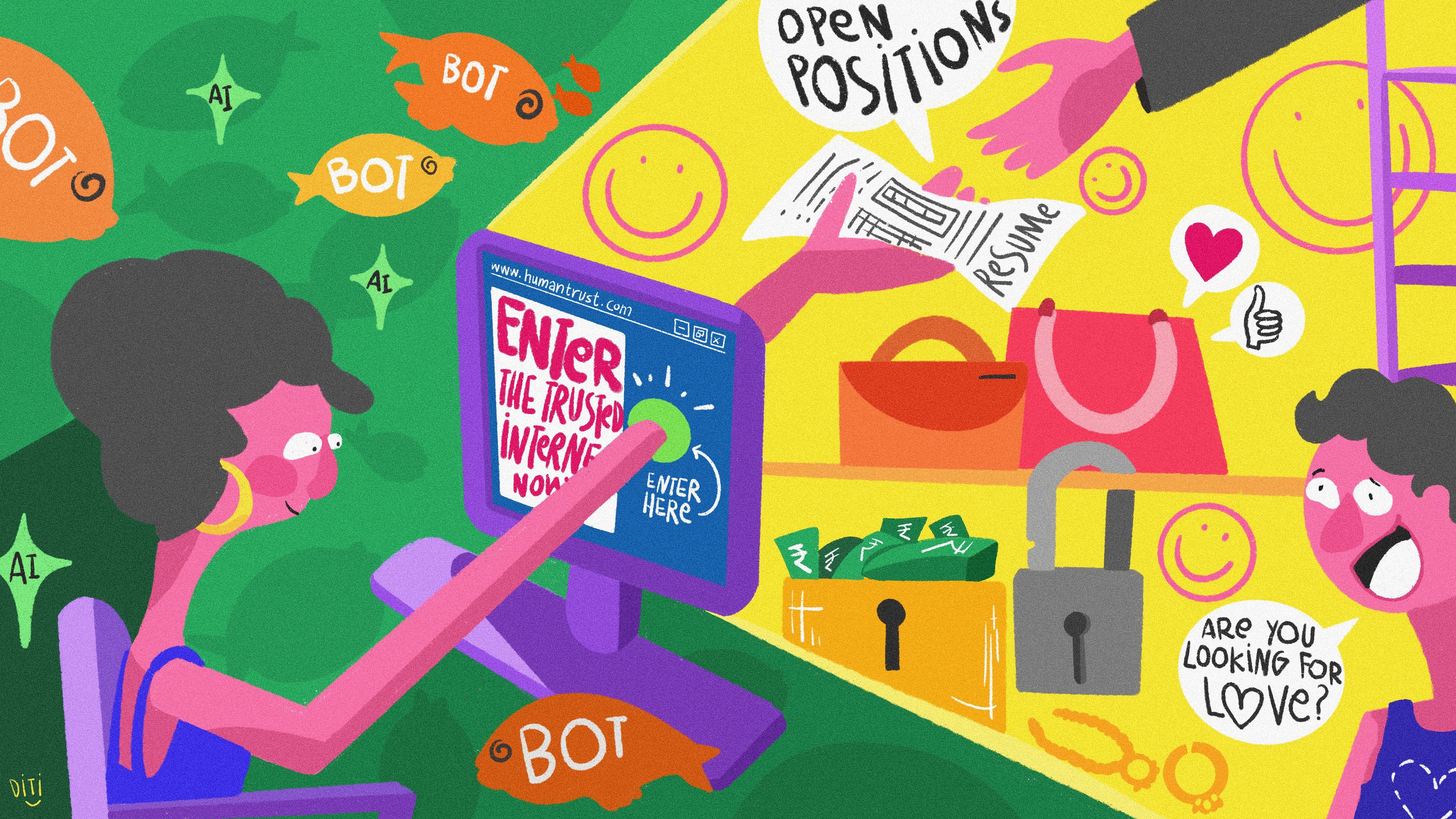Can We Build a Trust-First Internet? Redefining Humanness in the Age of AI
"Select all the pictures with bicycles."
"How many squares have traffic lights?"
“Solve this math equation”

These digital literacy tests of our era waste a staggering 500 human years every single day. According to Cloudflare's research, each of us spends an average of 32 seconds proving we're human through CAPTCHAs. Even more ironically, we made the AIs better at solving captchas by solving captchas - hence making them better over time.
We've reached a peculiar moment in internet history: Machines are better at proving they're human than we are.
The breaking point of digital trust
The CAPTCHA crisis symbolizes a deeper fracture in our online world. Consider this: While you struggle to identify blurry street signs, sophisticated bots are writing college essays, creating viral social media campaigns, and even conducting human-like customer service conversations.
This method for verifying human identity has become both a burden to real users and ineffective against the very machines it aims to detect.
The cost isn't just in time – it's in trust.
When dating apps report a record high number of fake, and social media platforms acknowledge that nearly half their engagement comes from bots, we're no longer talking about a minor inconvenience. We're witnessing the erosion of genuine human connection online, which can have very real tangible social and economic consequences.
Beyond CAPTCHAs: A human-first approach
What if verifying your humanity online was as simple as doing it once and receiving a badge that works across all platforms? No repetitive tests, no sharing personal details—just a secure way to prove you’re a unique person while protecting your privacy.
This idea focuses on separating two key aspects: confirming you’re human without revealing your identity. Imagine receiving a universal marker that says, “This is a real person,” without storing any personal information. It could work seamlessly across supported platforms, making online interactions simpler and more trustworthy.
We don’t have all the answers yet, but we’re starting with the question: Could a system like this become a global digital public good? The internet is inherently borderless, yet most identity solutions today are tied to specific regions or countries.
A global approach could provide a universal framework for verifying humanity, addressing the unique challenges of a connected world. By focusing on privacy, inclusivity, and accessibility, such a system could help build trust in a way that works for everyone, no matter where they are or how they use the web. It’s a big idea, but one worth exploring as we think about the future of human interaction online.
Where proving personhood on the internet could make a difference
As we explore the potential of a trust-first internet, our community has identified several compelling applications where Proof of Personhood could transform our online experience. Here are some key opportunities we've identified so far:
Trusted e-commerce reviews: Every "verified purchase" review would truly come from a unique human purchaser. No more armies of bots flooding product pages with fake reviews, no more AI-generated feedback masquerading as human experiences. When you read a product review, you'd know it represents someone's real experience.
Social media integrity: Platforms could finally offer real protection against waves of fake accounts and manipulation campaigns. Each account would represent a unique human being, making it virtually impossible to create bot networks or launch coordinated harassment campaigns.
Job market authentication In an era where job scams are increasingly sophisticated, recruiters could be confident they're talking to real candidates, while job seekers could verify potential employers are legitimate – all without compromising personal privacy.
Educational integrity: As AI-generated content becomes indistinguishable from human work, educational institutions need new ways to verify student submissions. We could help maintain academic integrity by ensuring submitted work represents genuine human effort and learning, while still allowing students to use AI as a learning tool.
Digital identity integration: We could complement existing digital identity systems like India's Aadhaar, creating a privacy-preserving bridge between verified identity and anonymous online participation.
These applications are just our starting point. As our community grows and AI technology evolves, we expect to discover many more ways being able to prove humanness could help build a more trustworthy internet.
Why this matters now
Every day, the line between human and AI-generated content grows thinner. The "uncanny valley" of digital interaction isn't about robots looking almost human anymore – it's about not knowing if that thoughtful comment on your blog post came from a person or a program.
But unlike the pessimistic view that technology will inevitably erode human connection, we see an opportunity. By building systems that verify humanity while protecting privacy, we can create online spaces where genuine human interaction flourishes alongside AI assistance.
While we don't have all the answers yet, we're taking the first crucial step: Building a community of people who deeply care about maintaining human trust in an AI-powered internet.
We're bringing together developers, privacy advocates, and digital citizens who understand that the rise of AI creates both opportunities and risks for online trust. Rather than rushing to implement technical solutions, we're starting with the human element – creating a space for thoughtful discussion about how we can preserve authentic human connection.
This community-first approach acknowledges a crucial truth––we don't yet know exactly how we'll solve the challenge of proving personhood online. What we do know is that the solution will emerge from collective wisdom and careful consideration of everyone's needs, rights, and concerns.
The internet wasn't originally built with trust as a foundation. But together, we can rebuild parts of it. By joining this early conversation, you're helping shape how humans and AI will coexist in our digital future.
The future of human trust online isn't about better CAPTCHAs or more sophisticated bot detection. It's about creating spaces where being human is enough.
Share your thoughts and join our growing community at https://pplus.ai/join-pop

